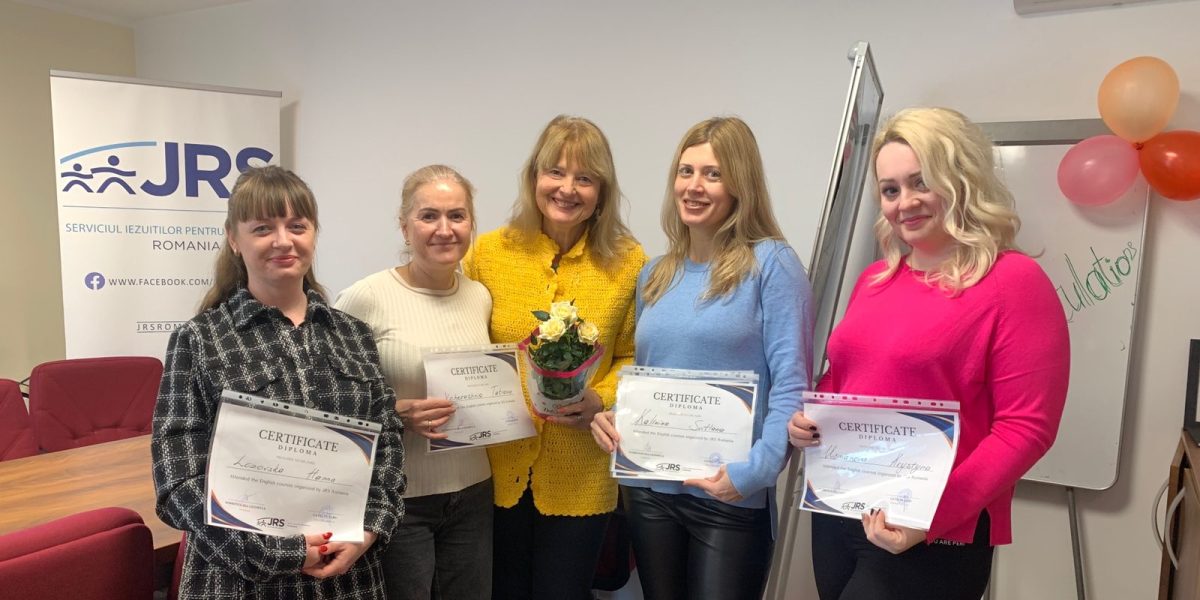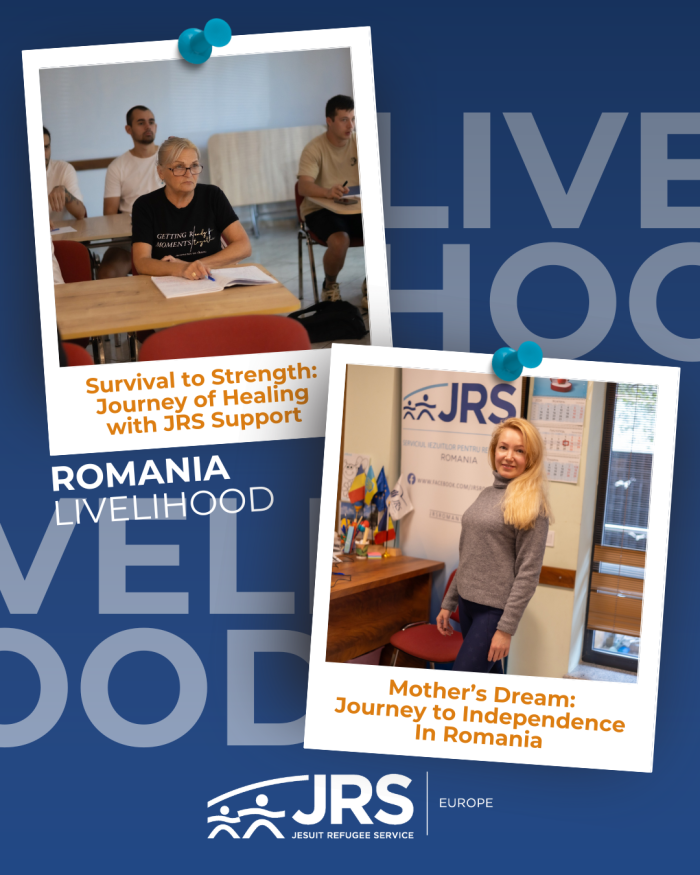Restoring Confidence and Livelihoods: JRS Romania’s Holistic Approach to Refugee Integration
24 February 2026

In Romania, JRS delivers a comprehensive, multi-dimensional livelihood strategy for Ukrainian refugees, asylum seekers from Syria, Somalia, and beyond, and vulnerable host-community members. Active in Bucharest, Constanta, Galati, Brasov, and Medias (Sibiu), JRS Romania integrates vocational training, language instruction, legal support, and psychosocial care into a cohesive model aimed at strengthening economic resilience, emotional well-being, and social integration.
Currently, about 75% of participants are women, many fleeing the war in Ukraine, reflecting the demographic shift caused by the ongoing conflict. JRS Romania’s training portfolio is tailored to the local labor market, offering specialized courses in beauty care, IT, cleaning, hospitality, distillery work, and electrical services. These are delivered alongside Romanian language classes, translation assistance, and cultural orientation sessions to improve communication and readiness for employment.
Although JRS does not employ a formal “pull” strategy, it actively encourages employer engagement through recruitment drives and targeted language courses that connect participants to work opportunities. Meanwhile, regular conflict sensitivity analyses, baseline surveys, and gender-informed programming ensure interventions remain culturally responsive and participant-centered.
Still, staff note persistent challenges: language proficiency remains a barrier to long-term employment, while many refugees struggle with unrecognized foreign credentials, short-term contracts, and limited employer partnerships. In response, JRS is scaling up efforts to expand digital literacy, entrepreneurial training, and robust monitoring systems to track outcomes and guide program improvements.
Most participants are aged 25–45 and come from diverse educational backgrounds—some with advanced degrees, others with minimal schooling. They seek to improve language fluency, gain locally relevant skills, and secure stable employment. Many rely on precarious, short-term jobs while pursuing more sustainable pathways. Participants consistently highlight the importance of advanced language classes, credential recognition, and soft skills for building confidence and social belonging.
Key partners such as AFF and Sensiblu advocate for longer-term investment in employment programs and gender-based violence (GBV) support, emphasizing the need for integrated, multi-year solutions. JRS Romania’s model—while donor-supported and highly adaptive—still faces limitations in funding continuity, partnership stability, and policy engagement.
Yet the program’s impact is clear: through a compassionate and tailored approach that includes Ukrainian-speaking staff, trauma-informed care, and flexible scheduling, JRS Romania has cultivated trust, resilience, and renewed purpose among refugee participants. Plans are underway to deepen partnerships with government agencies, employers, and NGOs to expand education, facilitate diploma recognition, and improve healthcare access—ensuring that integration is not only possible but sustainable.

Stories of Success: Healing, Purpose, and Entrepreneurship
Iryna, a refugee from Kherson, crossed 42 checkpoints to escape war and find safety in Romania. Arriving emotionally exhausted and uncertain, she found more than just services through JRS: she found healing. Supported by art therapy, counseling, and community activities, Iryna began to rebuild her sense of self. Today, she’s studying psychology and helping others navigate trauma. “JRS didn’t just offer services,” she says. “They offered hope, purpose, and a path forward.”
For Antonina, the journey from Ukraine with her two daughters was marked by fear and uncertainty. But in Bucharest, JRS helped her access education for her children, retrain in beauty care, and reclaim her profession. Today, she runs a thriving small business, supports her family, and contributes to her local community. “JRS restored my confidence and sense of purpose,” she shares—proof that with the right support, displaced mothers can build back stronger.
Read more about the Livelihood project here: https://jrseurope.org/wp-content/uploads/sites/19/2025/06/LIVELIHOOD-REPORT-2025-2.pdf.
